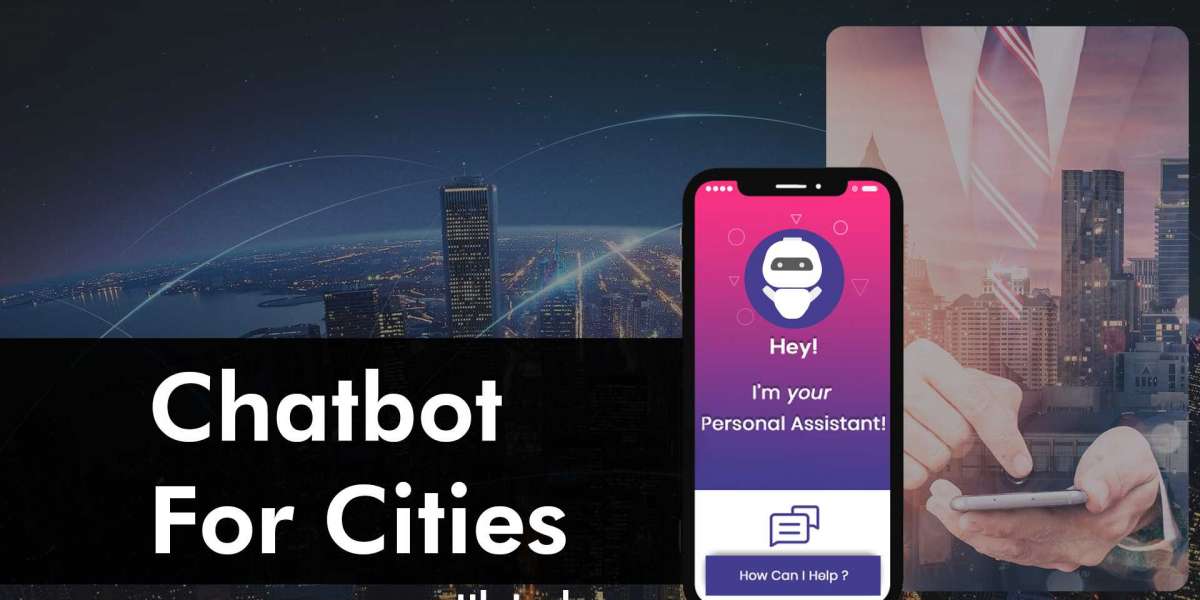In today's digital age, the concept of chatbots is becoming increasingly popular across a wide range of industries. City chatbots, in particular, are gaining traction as a tool for revolutionizing local services. By leveraging chatbot technology, city governments and local businesses can provide efficient and accessible services to residents and visitors alike.
The use of chatbots is rapidly growing in popularity, and for good reason. These AI-powered bots are able to provide quick and efficient responses to customer inquiries and are becoming increasingly common in a variety of industries. One area where chatbots are particularly well-suited is in local services, where they can provide an easy and accessible way for residents to get information about their city.
In this article, we'll explore the potential of city chatbot technology and how it's poised to transform local services.
What is a city chatbot?
A city chatbot is an artificial intelligence-powered software application designed to simulate human conversation with users. These chatbots can be integrated into various communication channels, such as messaging platforms or voice assistants, to provide 24/7 access to local services.
City chatbots are specifically designed to help residents and visitors access information about the city, such as local events, transportation services, city regulations, and more. They can also assist with tasks like scheduling appointments or making reservations at local businesses.
The Benefits of City Chatbot Technology
City chatbots offer a wide range of benefits for both residents and local businesses. Here are some of the main advantages of this technology:
24/7 Accessibility: City chatbots can provide 24/7 access to local services, ensuring that residents and visitors can get the information they need at any time, without having to wait for regular business hours.
Cost-Effective: Chatbots are cost-effective compared to human customer service representatives. They can handle a high volume of inquiries at once, which can save time and resources for local governments and businesses.
Efficiency: City chatbots can quickly provide answers to frequently asked questions, such as those related to transportation, city regulations, and local events. This can save time for both residents and local businesses by reducing the need for phone calls, emails, or in-person visits.
Personalization: City chatbots can use data analysis to provide personalized recommendations to users, such as local events or businesses based on their preferences. This can enhance the user experience and increase engagement with local services.
Revolutionizing Local Services
The potential of city chatbot technology is vast, and it's already being used in various cities around the world. Let's take a look at some of the ways in which this technology is revolutionizing local services.
Transportation: City chatbots can assist with transportation-related inquiries, such as providing real-time updates on bus and train schedules or helping users find the best route to their destination. They can also help users book transportation services, such as taxis or ride-sharing services.
Local Events: City chatbots can provide information about local events, such as concerts, festivals, and sporting events. They can also help users book tickets or reserve seats, making it easier for residents and visitors to attend these events.
City Regulations: City chatbots can provide information about city regulations, such as building permits, zoning laws, and noise ordinances. They can also help users submit applications or permits online, saving time and resources for both residents and local governments.
Local Businesses: City chatbots can help users find local businesses, such as restaurants, shops, and services. They can provide personalized recommendations based on the user's preferences, and even help users make reservations or appointments.
Future of City Chatbot Technology
As the use of chatbots continues to grow, we can expect to see a number of advancements in city chatbot technology. Here are a few examples:
More Advanced AI
As AI technology continues to evolve, we can expect to see city chatbots become even more advanced in their ability to understand and respond to user inquiries. This could include the use of natural language processing (NLP) to better understand user intent and provide more accurate responses.
Increased Personalization
City chatbots may become more personalized in their responses, taking into account a user's location, preferences, and past interactions with the bot. This could lead to a more tailored and efficient experience for users.
Integration with Smart City Technology
As cities become increasingly "smart," with sensors and other IoT devices collecting data and providing real-time information, city chatbots may be integrated with these systems to provide even more advanced and accurate responses.
Voice-Activated Chatbots
As voice-activated assistants such as Amazon's Alexa and Google Home become more common in households, we may see the development of voice-activated city chatbots. This would provide a hands-free and even more accessible way for residents to get the information they need.
Challenges of City Chatbot Technology
While city chatbots offer many benefits, there are also some challenges to consider. One of the main challenges is ensuring that the chatbot is able to provide accurate and relevant information to users. This requires extensive data analysis and testing to ensure that the chatbot is able to understand user inquiries and provide accurate responses.
Another challenge is ensuring that the chatbot is user-friendly and easy to use. City chatbots need to be designed in a way that is intuitive and user-friendly, so that users can quickly and easily find the information they need.







